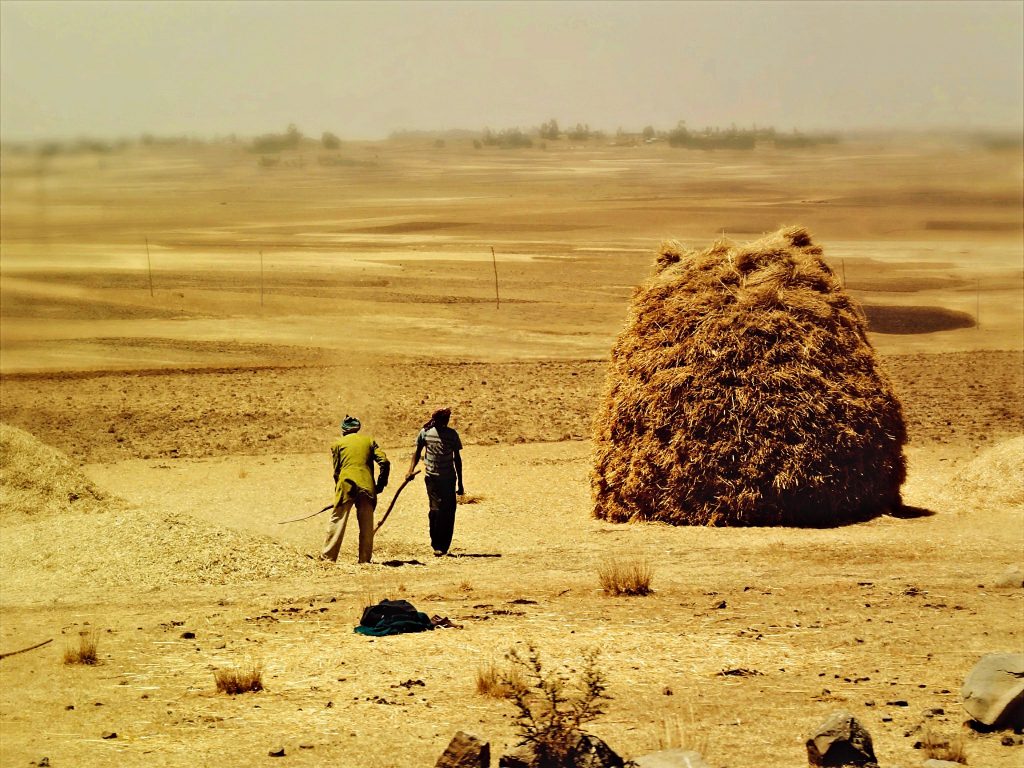The Global Panel’s Statement on Climate Change, Food Systems and Nutrition

In October 2015, the Global Panel released a brief on climate smart food systems for enhanced nutrition. In November, the Global Panel met in Accra, Ghana, which facilitated direct consultation with many partners. The Panel is committed to evidence based policy recommendations that emerge from innovation in the real world.
Evidence shows that changing climate conditions will have important impacts on agricultural production and the quality of food and nutrition available to billions of people. The Global Panel notes that too little attention has been paid to the investments that will make agriculture more adapted and resilient to climate change, improving agriculture productivity and nutrition, while reducing emissions. The convening of COP21 provides an important opportunity to raise the profile of agriculture, food, and nutrition in the future.
The Statement
- From 30 November-12 December, climate negotiators from around the globe will be meeting in Paris to finalise an agreement that aims to keep global average temperature rise below 2 degrees Celsius and on how we can accelerate adaptation support to the world’s poorest. The Global Panel on Agriculture and Food Systems for Nutrition is concerned that in the past, agriculture has not been afforded the priority that it deserves. Realising nutrition outcomes from effective climate smart agriculture will be essential for seeing progress towards the implementation of the Sustainable Development Goals (SDGs).
- Climate change is expected to push down global farm output by 2% per decade between now and 2050. Demand for food is expected to rise substantially during that same period. All of us depend on the nutritious food produced by millions of farmers for our health and wellbeing. We will continue to do so even as drought, extreme weather conditions, and temperature changes associated with climate change challenge the resilience of the agricultural sector.
- Good nutrition is a universal goal that lies at the heart of actions to resolve both undernutrition and diet-related chronic diseases. These complex nutrition challenges pose a huge burden for social and economic development. Countries whose agriculture is likely to be most negatively impacted by climate change are those that already have the highest burdens of undernutrition. Many of these countries are in Africa; the impacts of climate change are therefore likely to be highly significant for the continent.
- Action to reduce agriculture’s contribution to greenhouse gas (GHG) emissions is also imperative. The Panel welcomes country submissions of their Intended Nationally Determined Contributions (INDCs).
- Parties have referenced adaptation actions in all sectors. Across these INDCs we see that the priority areas are water, agriculture and health[1]. Of the 156 parties that have submitted INDCs, only 24 refer to nutrition, and fewer note the complementarity of nutrition policies and climate action[2]. Win-win solutions are needed to address climate change, agriculture, and food security goals simultaneously – solutions regarding one should also benefit the others.
To achieve these goals, the Global Panel on Agriculture and Food Systems for Nutrition make the following policy recommendations:
- Include diet quality goals with adaptation targets proposed for climate action.
- Diversify agricultural investments, factoring in the local realities of ecological sustainability and comparative advantage.
- Support greater food system efficiency so that outputs per unit of water, energy, land, and other inputs are optimised and the footprint of agriculture and non-farm activities are better managed to meet both food demand and higher-quality diets.
- Integrate measures to improve climate change resilience and the nutritional value of crop and livestock products along the value chain, from production to marketing.
- Protect the diet quality of the poor in the face of supply shocks and growing food demand through social protection, for example.
- Promote the generation and use of rigorous evidence on appropriate investments along food value-chains, which are resilient to climate change and also deliver positive dietary outcomes and support improved nutrition.
COP21 represents for the Global Panel an opportunity to discuss the policies needed to achieve food and nutrition security under climate change. We will do so at our side event: Climate-Smart Food Systems for Enhanced Nutrition, scheduled for Saturday 5 Dec at 10.00am at the Africa Pavilion.
